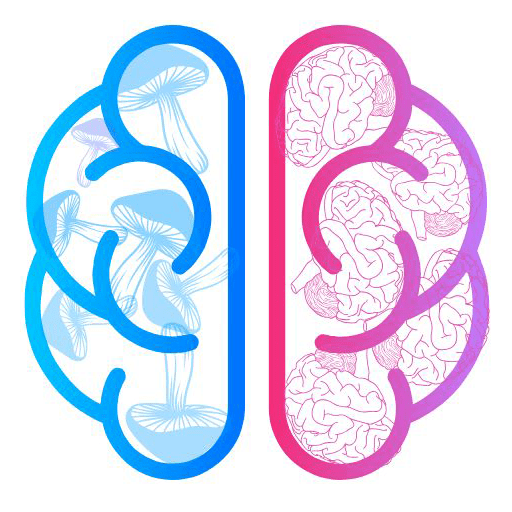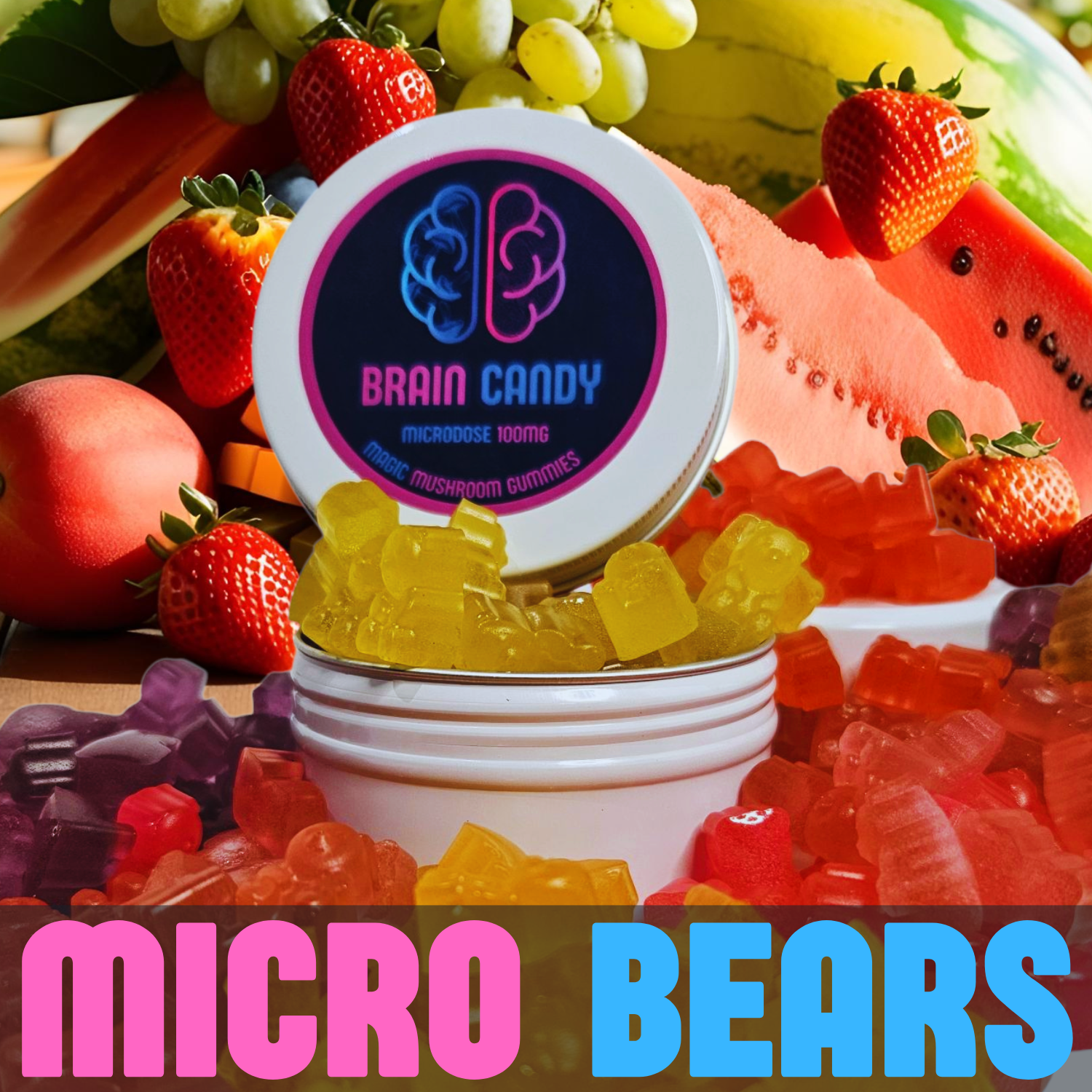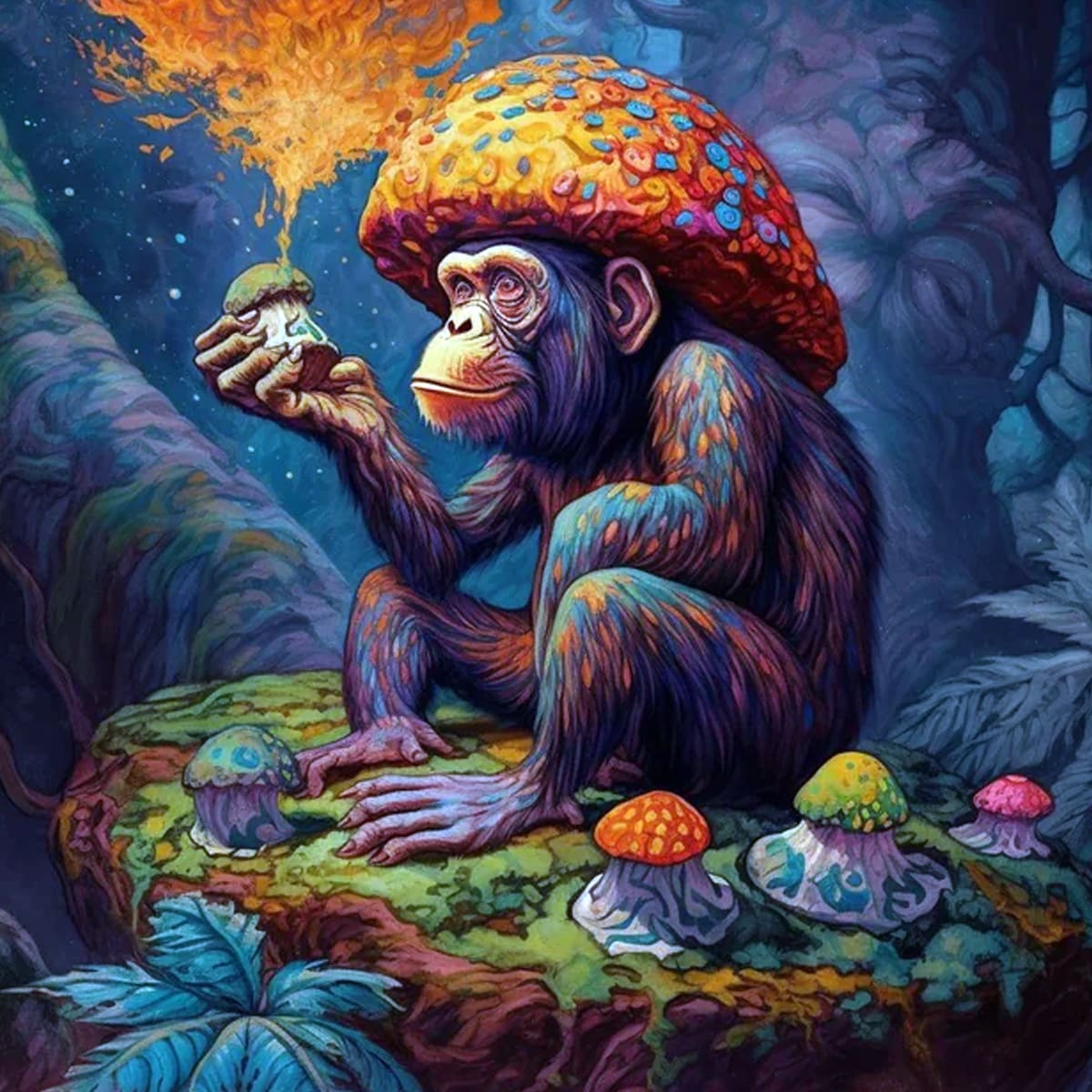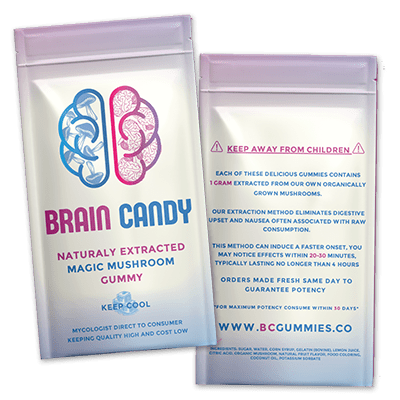Frequently Asked Questions
Yes, if you wish to place an order via e-transfer, click here.
What Is Psilocybin?
Psilocybin is a hallucinogenic compound that occurs naturally in psilocybin mushrooms (psilocybin mushrooms are also referred to as “magic mushrooms” or “shrooms”). There are more than 180 species of mushrooms containing psilocybin.
They are currently among the more popular psychedelics in Canada, America and Europe, although they have a lengthy history of use in Mesoamerica for spiritual and religious rituals.
They are also proving very useful in treating a range of afflictions among patients requiring relief from headache pain, OCD, PTSD, anxiety, depression, and addiction, among many others.
Although in some countries, psilocybin mushrooms are still considered to be a controlled substance, research in human studies show effective use in medical and psychiatric environments at leading institutions.
How Does Psilocybin Work?
When we ingest psilocybin, our digestive system produces the psychoactive compound psilocin, which initiates changes in our brain function, causing increased activity in our visual cortex, changing perception, causing decreased network activity in the “Default Mode Network,” resulting in a reduction of ego. Psilocybin also increases connectivity and activity in different areas of the brain. The combination of these activities and alterations are why it is considered an effective tool among researchers for addressing those suffering from depression and addiction.
One of the main effects of a psychedelic like psilocybin is its ability to mimic serotonin, thus stimulating a serotonin receptor called “5-HT2A,” located in the prefrontal cortex. This stimulation of the 5-HT2A receptor yields 2 results:
1. BDNF (or “Brain-Derived Neurotropic Factor”) is produced. This has been described as “Miracle-Gro” for your brain. It stimulates the activity, connectedness, and the actual growth of your brain.
2. Cognition, learning, and memory are increased due to the increased transmission of the neurotransmitter “Glutamate.”
There are treatment benefits from the tandem effects of Glutamate and BDNF. These two substances work in ways we are still trying to understand, although the benefits continue to become increasingly clear.
Researchers are also finding that psychedelics cause parts of the brain that don’t usually communicate with each other to communicate with each other. By lowering our need to use what has been considered an over-used part of our brain referred to as the “Default Mode Network” (or DMN), other connections get a chance to form. This DMN area of the brain is largely responsible for daydreaming, self-reflection, and contemplating the past or future. These mental activities, and substances that cause them, can easily be responsible for depression and anxiety and maybe blocking more inaccessible creative perspectives.
What Is Microdosing? Microdosing, a practice of taking small, sub-perceptual amounts of psychedelics like LSD or psilocybin on a schedule. Although sub-perceptual, these small doses can have a noticeable influence on your life. A microdose typically ranges from 50mg to 200mg on a weekly schedule, which includes skipping a couple of days. If taken in this manner, no impairment of normal functioning is experienced.
What Are The Benefits Of Psilocybin Microdosing? The growing body of evidence and testimonials on microdosing is remarkable. People report that microdosing helps alleviate various mental health challenges, including fear responses, depression, anxiety, ADD, ADHD, PTSD, mood disorders, and addiction. It’s also known to enhance cognitive function and spark creativity.
Psilocybin, a popular choice for microdosing, is associated with numerous benefits such as improved cognition, creativity, energy levels, focus, social interaction, athletic performance, and leadership skills.
Here’s a breakdown of the most commonly reported benefits of microdosing:
- Mood Enhancement:
Microdosing promotes a more positive outlook on life, fostering optimism, emotional balance, and a sense of well-being. It can also reduce symptoms of depression. - Physical Benefits:
Users report better visual perception, enhanced cardio endurance, fewer migraines, improved sleep quality, and higher energy levels, especially in terms of mental alertness and focus. - Reduced Anxiety:
Both social and personal anxiety are significantly decreased, promoting a sense of calm and ease in social settings. - Cognitive Improvements:
Microdosing can enhance mental clarity, boost memory, and improve problem-solving skills. - Social Connection:
Many users feel a stronger sense of empathy, connection, and engagement with others, leading to more extroverted behavior. - Self-Efficacy and Self-Care:
Microdosing encourages greater motivation, ambition, and confidence. It often inspires self-reflection, meditation, and other self-care practices. - Creativity:
It promotes curiosity, openness to new ideas, fresh perspectives, and the ability to shift mental patterns. - Enhanced Focus:
Microdosing sharpens concentration and increases self-awareness, making it easier to stay present and mindful.
Research shows that regular microdosing can positively impact several mental health conditions. Additionally, studies indicate that larger doses of psychedelics may be effective in treating conditions like depression, anxiety, and addiction.
What Are The Effects Of Psilocybin Microdosing? In answering this question, it is important to note that psilocybin has numerous functions in the brain that improve the hippocampus’s health. This is the part of the brain responsible for learning and turning short-term memory into long-term memory. Psilocybin helps the hippocampus form new cells. Scientists believe that this new cell growth can lead to what they refer to as “the extinction of trace fear conditioning,” which is common among those suffering from PTSD.
The effects of Microdosing 50mg to 250mg of psilocybin include:
- A slight sedation
- Mood enhancement or amplification of mood in either a positive or negative direction
- Increased energy with no subsequent crash
- Physical endurance improvement and overall enjoyment of physical activity and everyday tasks
- Increased ability to relax, and body awareness
- Increased ability to meditate
- Tendency to be spontaneous
- Increase in creativity
- Enhanced appreciation of the arts
- Enhanced senses
- Enhanced memory
- Thoughts are more connected and clearer
- A sense of fluidity between body and mind
- Increased productivity and ability to focus
- Interest in making lifestyle improvements
- Treatment for conditions such as depression, anxiety, ADD, ADHD, and PTSD
- Increased ability to engage in fluid conversations
- An increase in empathy and ability to socialize
- Increased ability to forgive yourself
- An open mindfulness, presence, and peace
- Stabilized emotions
- Stress reduction

What Brain Candy Customers Are Saying:
Brain Candy – Buy Magic Mushrooms Online in Canada
Most Popular from Brain Candy:
Most Popular from
Brain Candy:

Brain Candy – cut out all the middle men and deliver a product from mycologist, direct to consumer.

Information | Education | Announcements | News
Information | Education | Announcements | News
Introducing BC Micro Bears – The Ultimate Microdosing Experience!
Introducing BC Micro Bears – The Ultimate Microdosing Experience The Benefits of Microdosing with Micro Bears: In today’s fast-paced world, maintaining focus,
Unlocking Creativity: The Artistic Benefits of Magic Mushrooms
Unlocking Creativity: The Artistic Benefits of Magic Mushrooms For centuries, artists, writers, and musicians have sought inspiration through altered states of
The Stoned Ape Theory: Did Magic Mushrooms Shape Human Evolution?
The Stoned Ape Theory: Did Magic Mushrooms Shape Human Evolution? Human evolution is a fascinating mystery, and one of the most
Introducing BC Micro Bears – The Ultimate Microdosing Experience!
Introducing BC Micro Bears – The Ultimate Microdosing Experience The Benefits of Microdosing
Unlocking Creativity: The Artistic Benefits of Magic Mushrooms
Unlocking Creativity: The Artistic Benefits of Magic Mushrooms For centuries, artists, writers,
The Stoned Ape Theory: Did Magic Mushrooms Shape Human Evolution?
The Stoned Ape Theory: Did Magic Mushrooms Shape Human Evolution? Human evolution





